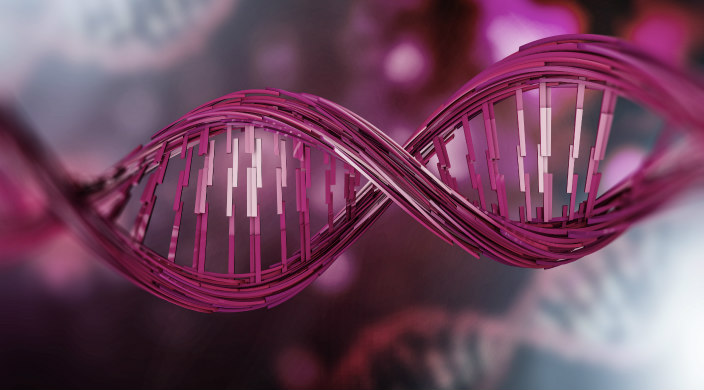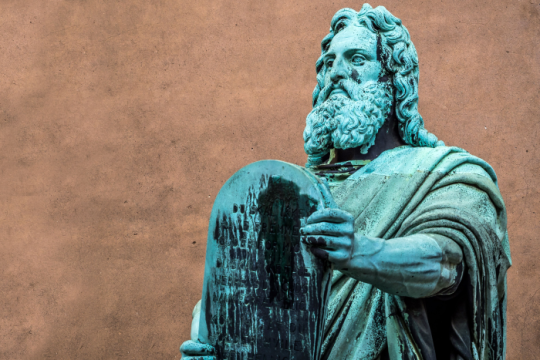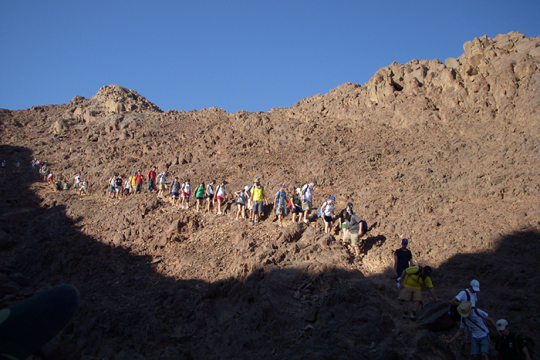
When I was in my late 20s, I visited the United States Holocaust Memorial Museum in Washington, D.C. I was prepared to be moved, disturbed, and even frightened by what I would encounter there. After all, my father and his parents and grandmother escaped Berlin in 1941, a fact that has hung over our family’s history like a veil. But the thing that stood out for me so powerfully during that visit was how much the faces of the European Jews looked just like me.
Genetics is a strange thing. We inherit our hair color, our height, our dimples from our ancestors. I inherited my deep brown eyes and my heavy, dark eyebrows from my father’s mother. She is the link to my European ancestors whose faces I saw at the museum. She also unknowingly passed down to me her BRCA1 cancer mutation. Yes, genetics is a strange thing.
A decade after that trip to D.C., when I was just 37 years old, I found a lump in my breast. This discovery led to tests and the terrifying reality that I was facing invasive breast cancer with significant lymph node involvement. My head spinning, I was rushed into surgeries, chemotherapy, and radiation. In the middle of the craziness, a genetic counselor sat down with me and pointed out that my history showed several red flags for carrying a genetic mutation: I was under 40 and pre-menopausal; I am an Ashkenazi Jew. Examining a family tree produced by an industrious relative, we found that my great-grandmother had died at age 28 of a “female disease,” which we now believe most likely was ovarian cancer.
When you get breast cancer, it is very personal. It happened to me. I received a diagnosis, I underwent surgery, I endured months of harsh treatments. When you find out you carry a genetic mutation, as I did around the midpoint of my chemo treatments, everything shifts. The I becomes we. To be clear, this is one of the few times in my life, I wished it had been just me. This was not something I wished to share with my family, but I had no choice.
The BRCA1 mutation does not discriminate; every descendant of a person who carries a mutation has a 50% chance of inheriting it as well. In my family, this means that relatives on my father’s side of the family could be carriers of a mutation that gives women an 85% chance of getting breast cancer and a 45% chance of getting ovarian cancer. For the men, breast cancer and other cancer risks are elevated above risk levels in the general population as well.
People have asked me how it feels to be the canary in the coal mine, the proverbial bird that was sent down the shaft to see if the air was safe for the coal miners. I was the first person in my family to find out about our BRCA mutation and I am the only one of my living relatives to have had a BRCA-related cancer. Because I ended up in that cancer coal mine, my loved ones know they can be tested to see if they carry the mutation and that they have options to reduce their risks of cancer and its treatments, and even an early death. Several family members have been through testing and they are now empowered to take control of their health to avoid what I went through.
As I grew stronger and began to put my breast cancer in my rear view mirror, I started to look for ways to educate others about BRCA. One thing I want to shout at the top of my lungs – because I certainly hadn’t heard it before – is this: One in 40 Ashkenazi Jews carries a BRCA mutation! That’s a ridiculously high number, especially when you consider that the number of mutation carriers in the general population is one in 500!
The next time you’re in a synagogue, Hadassah meeting, or Jewish Federation event, look around and count 40 of you. Chances are that one person in the group is carrying a mutation that gives them a very high risk of developing a life-threatening cancer… and they most likely don’t even know it.
I have spoken about my cancer and BRCA journey to synagogue groups, Jewish day schools, and women who have tracked me down to ask me questions. I will continue shouting loudly about BRCA mutations until everyone knows their risk and can take proactive measures to save their own lives. I never wanted to be the canary in my family’s genetics coal mine. But if I had to be that canary, I’m glad I could raise the alarm and warn the others.



